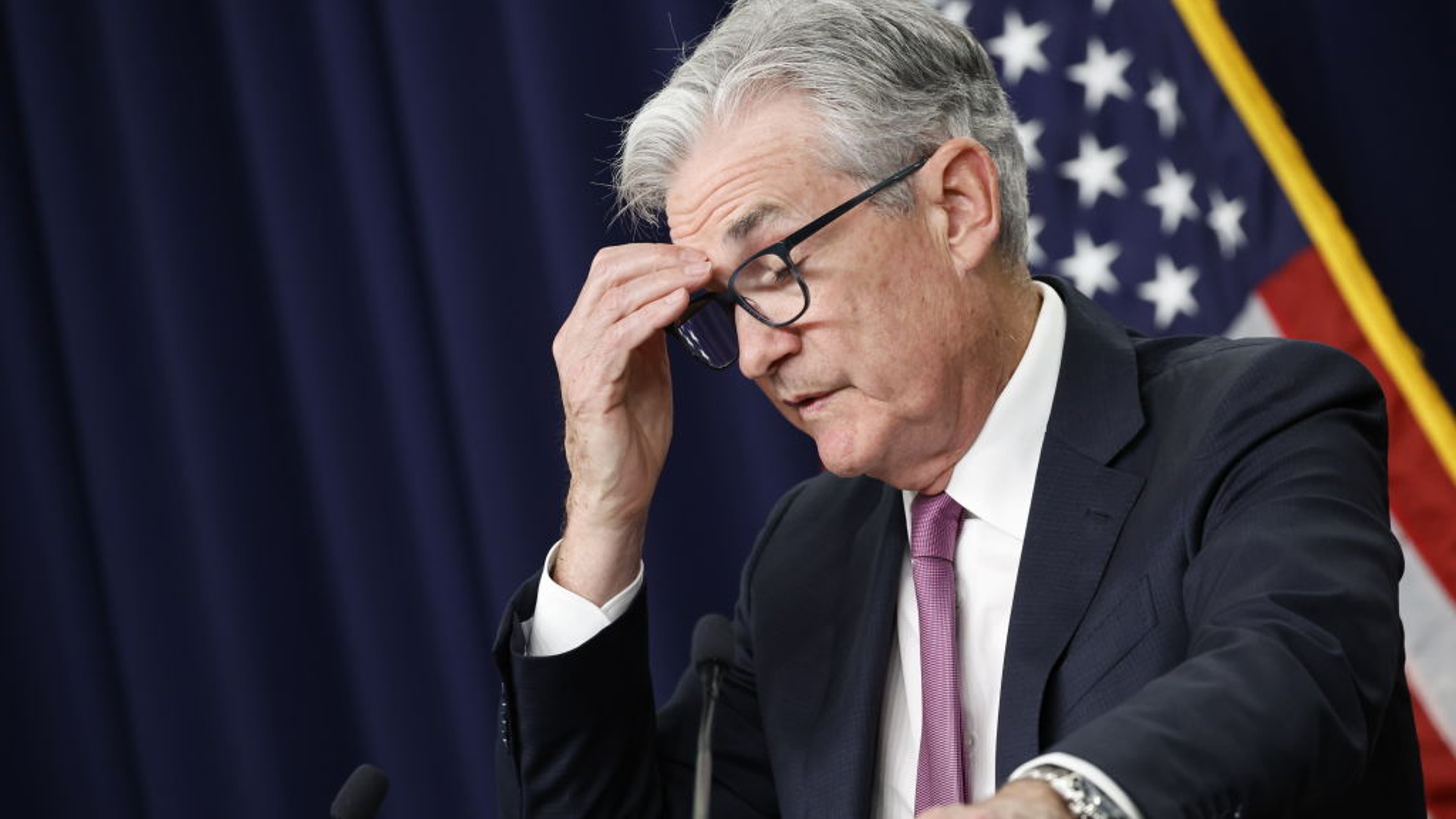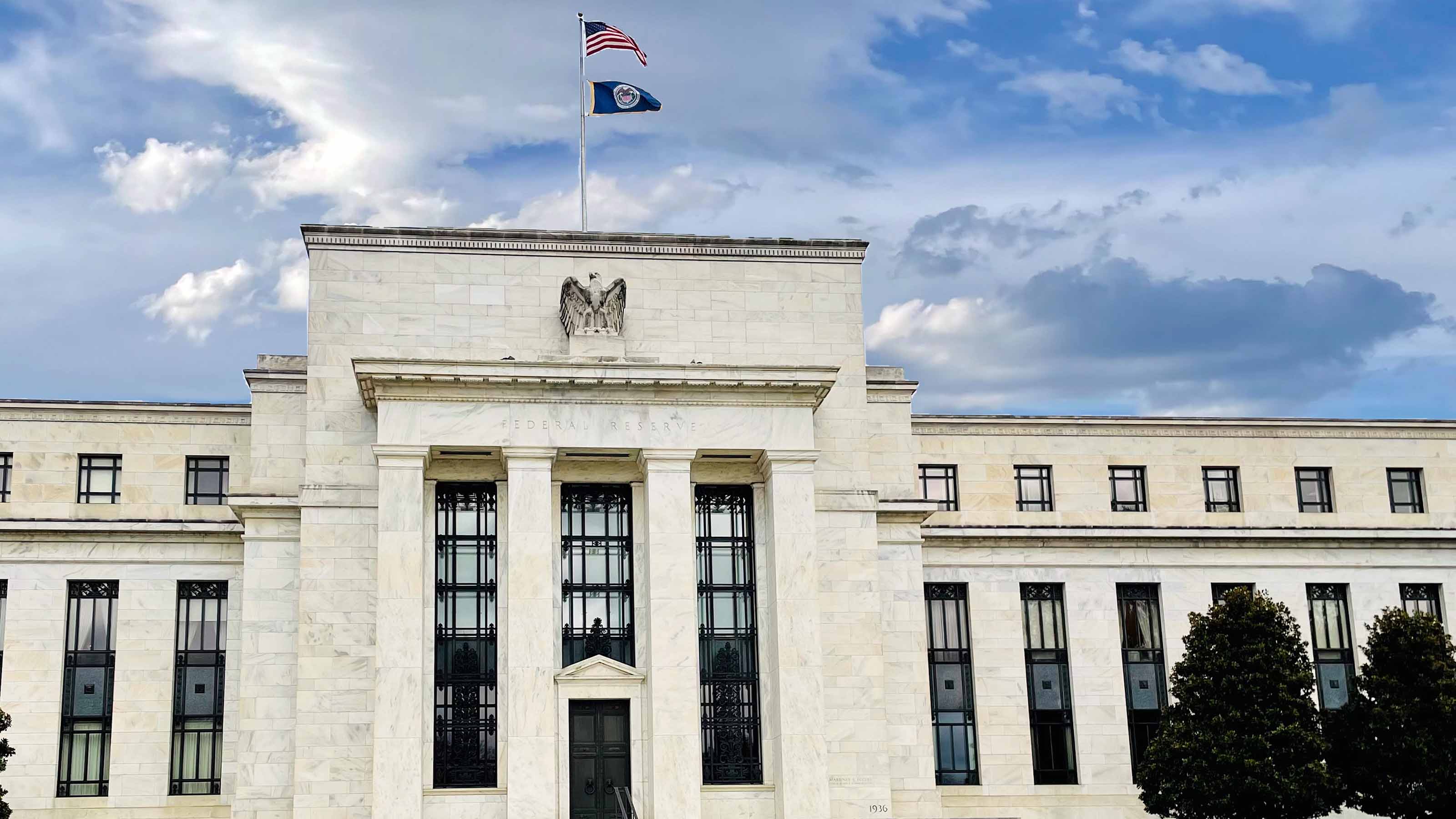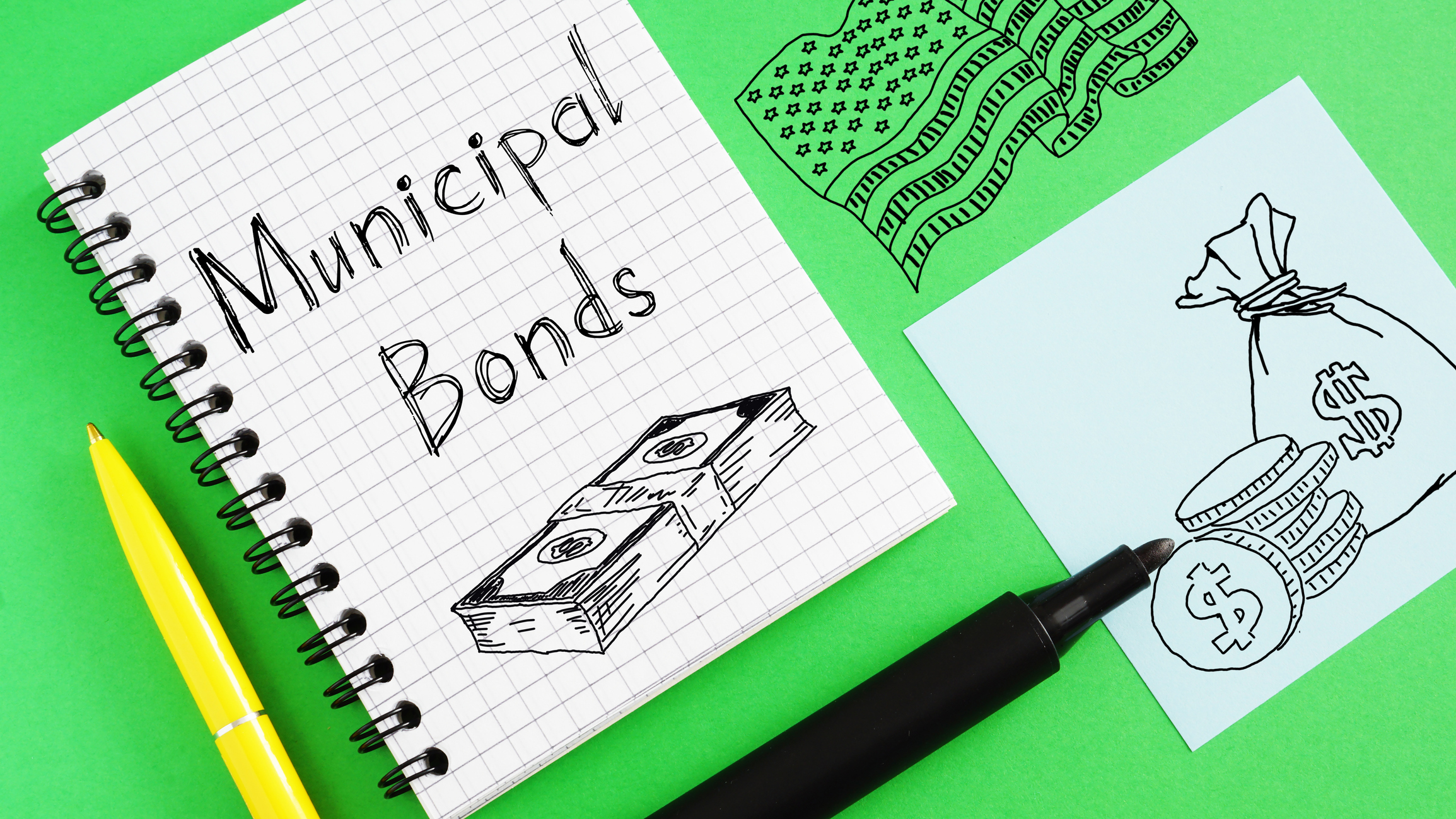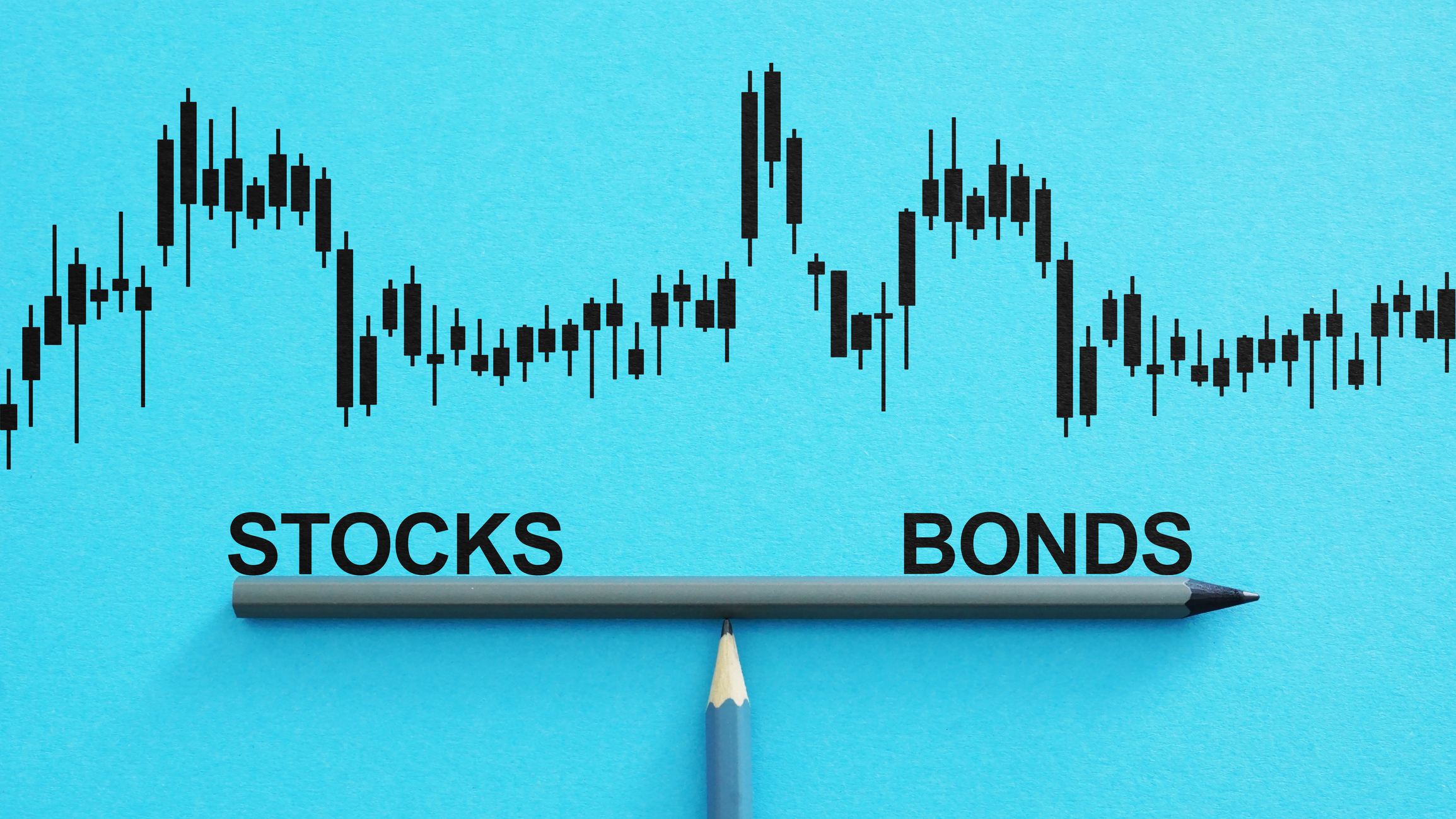When Is the Next Fed Meeting?
The FOMC is expected to keep interest rates unchanged at the next Fed meeting.


"When is the next Fed meeting?" is a question that hasn't weighed this heavily on anxious investors' minds in probably four decades.
Which is fair enough, really. The worst bout of inflation to hit the U.S. economy in 40 years was nearly back down to the central bank's long-term target when trade uncertainty once again raised the threat of rising prices.
The Federal Reserve brought borrowing costs down from a 23-year high in September 2024, slashing interest rates by a surprising half-percentage point.

Sign up for Kiplinger’s Free E-Newsletters
Profit and prosper with the best of expert advice on investing, taxes, retirement, personal finance and more - straight to your e-mail.
Profit and prosper with the best of expert advice - straight to your e-mail.
The Federal Open Market Committee (FOMC) then followed up in November and December by cutting the short-term federal funds rate by 25 basis points (bps), or 0.25%, at each meeting with the target range currently at 4.25% to 4.50%.
That said, the change in the political landscape complicates the central bank's calculus, as inflationary pressures could resurface under new administration policies.
That's a problem, because the Fed has a dual mandate. In addition to stable prices, the central bank is supposed to support maximum employment.
The question now is centered on what the Fed will do this year and beyond.
"With a lack of clarity across the economic landscape due to ongoing trade negotiations and the threat of tariffs, it is too soon to make a meaningful decision around interest rate cuts," notes Steve Rick, chief economist at TruStage. "Until we have a clearer picture, we don’t anticipate a significant move from the Fed."
That view comports with rising-if-mixed recession odds. Economists as a group now forecast a 40% chance of recession in the next year, up from 30% at the beginning of 2025.
For what it's worth, the New York Fed's yield-curve model gives a 30% probability to the U.S. entering a recession over the next 12 months.
The bottom line? When you consider the Fed's dual mandate against the backdrop of a mid-cycle economic expansion (easing inflation, slackening in the labor market), it kind of makes sense that folks are obsessed with the question of "when is the next Fed meeting?"
The fact that lower interest rates today equal higher returns for equities tomorrow also makes rate cuts rather attractive to market participants.
The next Fed meeting: what to expect

For the record, the central bank's rate-setting committee is called the Federal Open Market Committee (FOMC).
As you can see from the FOMC meeting calendar below, the committee meets eight times a year, or about once every six weeks. The FOMC is required to meet at least four times a year and may convene additional meetings if necessary.
The convention of meeting eight times per year dates back to the market stresses of 1981.
FOMC meetings last two days and conclude with the committee releasing its policy decision at 2 pm Eastern time. The Fed chief then holds a press conference at 2:30 pm.
(Pro tip: as closely scrutinized as the Fed statement might be, market participants are usually even more keen on what the Fed chair has to say in the press conference.)
As for the next Fed meeting, it will begin on June 17 and conclude with a policy statement on June 18 at 2 pm Eastern. A pause is by far and away the betting favorite.
As of May 20, interest rate traders assigned a 91% probability to the FOMC keeping the short-term federal funds rate at a target range of 4.25% to 4.50%, according to CME Group's FedWatch Tool. That's up from just 34% a month ago.
September remains the betting favorite for the next cut, with a 52% chance of a quarter-point cut.
For those wondering "when is the next Fed meeting?," have a look at the schedule, courtesy of the FOMC, below.
January 28 to 29 |
March 18 to 19 |
May 6 to 7 |
June 17 to 18 |
July 29 to 30 |
September 16 to 17 |
October 28 to 29 |
December 9 to 10 |
Related Content
Profit and prosper with the best of Kiplinger's advice on investing, taxes, retirement, personal finance and much more. Delivered daily. Enter your email in the box and click Sign Me Up.

Dan Burrows is Kiplinger's senior investing writer, having joined the publication full time in 2016.
A long-time financial journalist, Dan is a veteran of MarketWatch, CBS MoneyWatch, SmartMoney, InvestorPlace, DailyFinance and other tier 1 national publications. He has written for The Wall Street Journal, Bloomberg and Consumer Reports and his stories have appeared in the New York Daily News, the San Jose Mercury News and Investor's Business Daily, among many other outlets. As a senior writer at AOL's DailyFinance, Dan reported market news from the floor of the New York Stock Exchange.
Once upon a time – before his days as a financial reporter and assistant financial editor at legendary fashion trade paper Women's Wear Daily – Dan worked for Spy magazine, scribbled away at Time Inc. and contributed to Maxim magazine back when lad mags were a thing. He's also written for Esquire magazine's Dubious Achievements Awards.
In his current role at Kiplinger, Dan writes about markets and macroeconomics.
Dan holds a bachelor's degree from Oberlin College and a master's degree from Columbia University.
Disclosure: Dan does not trade individual stocks or securities. He is eternally long the U.S equity market, primarily through tax-advantaged accounts.
-
 What About Those ‘Guaranteed’ Life Insurance Ads?
What About Those ‘Guaranteed’ Life Insurance Ads?Guaranteed life insurance policies can sound tempting if you've been declined for insurance elsewhere. Here are four downsides and one alternative.
-
 13 Answers to Pressing Social Security Questions
13 Answers to Pressing Social Security QuestionsFrom smart claiming strategies for couples to tips on maximizing your monthly check, we have advice that can help you.
-
 What About Those ‘Guaranteed’ Life Insurance Ads?
What About Those ‘Guaranteed’ Life Insurance Ads?Guaranteed life insurance policies can sound tempting if you've been declined for insurance elsewhere. Here are four downsides and one alternative.
-
 Keep Tax Collectors at Bay with Muni Bond Funds
Keep Tax Collectors at Bay with Muni Bond FundsMunicipal bonds can be good insurance against inflation — and interest is tax-free. But as with all investments, understanding risk is key.
-
 Eight Tips From a Financial Caddie: How to Keep Your Retirement on the Fairway
Eight Tips From a Financial Caddie: How to Keep Your Retirement on the FairwayThink of your financial adviser as a golf caddie — giving you the advice you need to nail the retirement course, avoiding financial bunkers and bogeys.
-
 Just Sold Your Business? Avoid These Five Hasty Moves
Just Sold Your Business? Avoid These Five Hasty MovesIf you've exited your business, financial advice is likely to be flooding in from all quarters. But wait until the dust settles before making any big moves.
-
 Cord Cutting Could Help You Save Over $10,000 in 10 Years
Cord Cutting Could Help You Save Over $10,000 in 10 YearsHow cutting the cord can save you money and how those savings can grow over time.
-
 Should I Buy Stocks or Should I Buy Bonds Right Now?
Should I Buy Stocks or Should I Buy Bonds Right Now?Generally speaking, stocks provide reasonable growth while bonds provide stable income. Each play important roles in diversified portfolios.
-
 You Were Planning to Retire This Year: Should You Go Ahead?
You Were Planning to Retire This Year: Should You Go Ahead?If the economic climate is making you doubt whether you should retire this year, these three questions will help you make up your mind.
-
 Are You Owed Money Thanks to the SSFA? You Might Need to Do Something to Get It
Are You Owed Money Thanks to the SSFA? You Might Need to Do Something to Get ItThe Social Security Fairness Act removed restrictions on benefits for people with government pensions. If you're one of them, don't leave money on the table. Here's how you can be proactive in claiming what you're due.